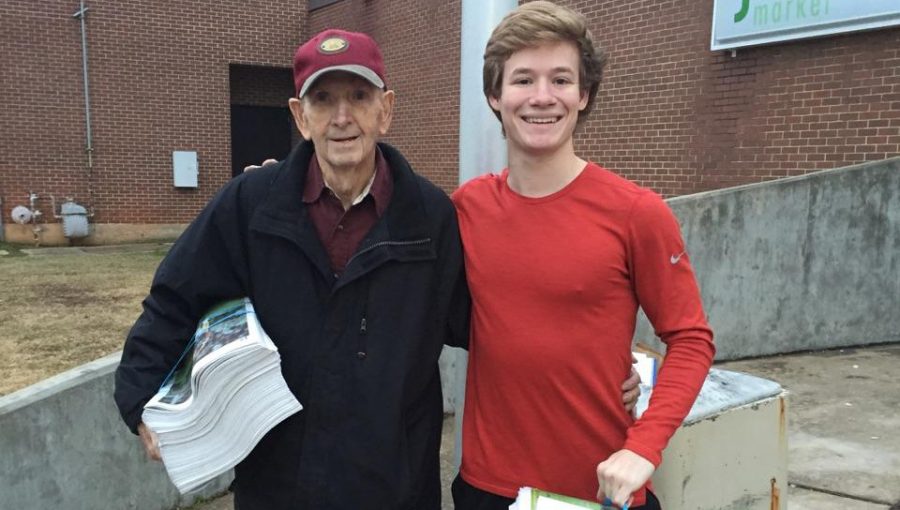For a little more than 15 years, Johnnie Livingston delivered newspapers for The Crimson White. Although he just retired, his legacy will continue on through his grandson Callan Burns, a senior majoring in finance and healthcare.
“It got to the point to where most of the workers I would see … They would always ask how my granddad was doing,” Burns sais. “He would always talk to people he saw. If there was a piece of trash on the ground or something, he would pick it up just to make the campus a better place.”
The day begins at 2 a.m., when the papers are still being printed at the Tuscaloosa News. Thousands of papers, divided among different routes, are set out on pallets. Livingston and Burns take their share, then set out on their route. Although most would struggle to wake up that early every day, Livingston has no problem.
“I spent 20 years in the army,” Livingston said. “I’m used to it.”
Burns said his grandfather’s mindset has always been reflective of his work ethic.
“He’s always had the mindset that, as long as he stays active, he’ll stay healthy,” Burns said.
As they go along their route that covers much of campus, an often-unseen side of the University emerges from the empty parking lots and streets.
“We would always see college students awake at like 3 in the morning in Paty just hanging out,” It was not a strange sight to see people awake at 3:30 playing guitar, sitting outside. I thought it was so bizarre,”
Over the course of the last 15 years, Livingston has amassed a few stories that he likes to share along his well-known stops.
“One morning I came and this guy on the bench was passed out.” Livingston said with a chuckle outside of the ten Hoor parking deck. “I checked him to make sure he was breathing, then called security and told them where he was,”
However, the nocturnal are not limited to students and partiers – the machinery that keep the University alive never stops running.
“Even the janitorial staff, I mean they’re cleaning the buildings at 3 in the morning … that’s stuff we don’t see and take for granted,” Burns said.
Over the years, Livingston has witnessed the exponential growth of campus, from the incessant construction to factors affecting his work. And, with the The Crimson White’s shift to a digital newspaper, they only deliver twice a week rather than four.
“When they were building all those sorority houses, we had to figure our way around it,” Burns said. “It’s fun to see how much has changed.”
Like most jobs, there are some downsides. Burns said his grandfather’s biggest complaint is not enough people read the paper.
“Every time we go somewhere, there’s always returns from the previous day we delivered,” Burns said. “That’s his biggest complaint over the years, just having to deal with those returns. It’s just excess waste. Sometimes, we’d have 1000 papers returned.”
In the end, the connection between the two is what makes the job special for Burns.
“Spending it with my granddad,” Burns said, “We have an extraordinary relationship.”









